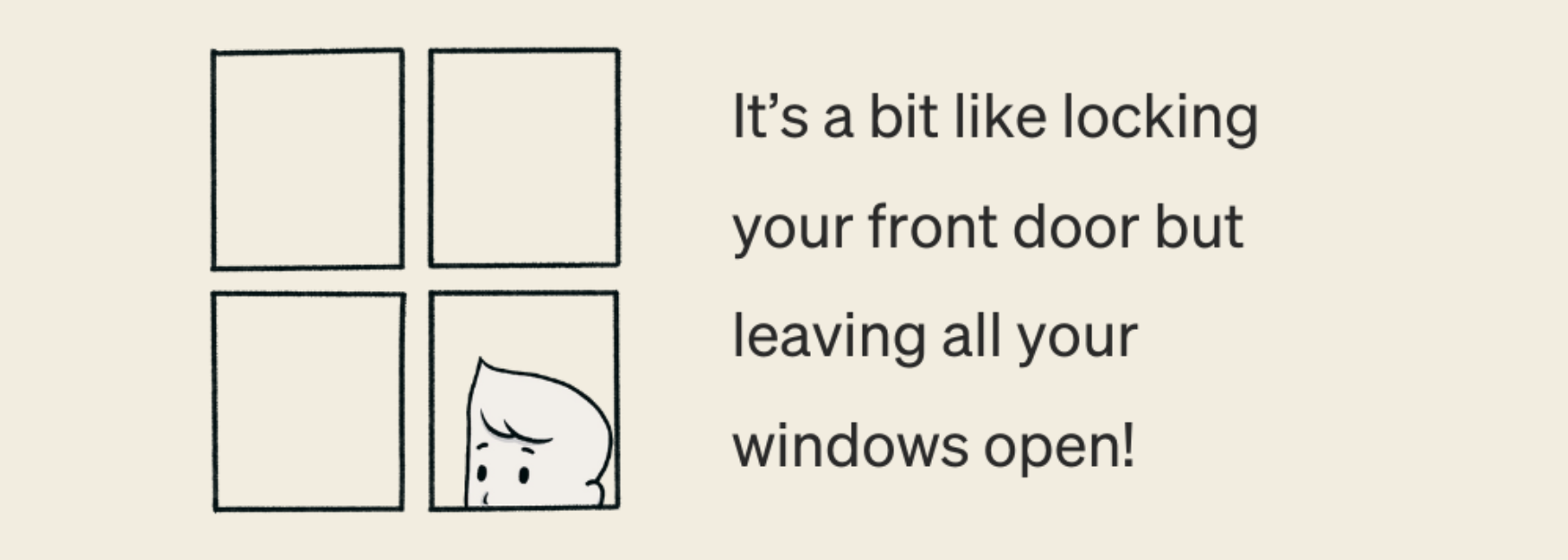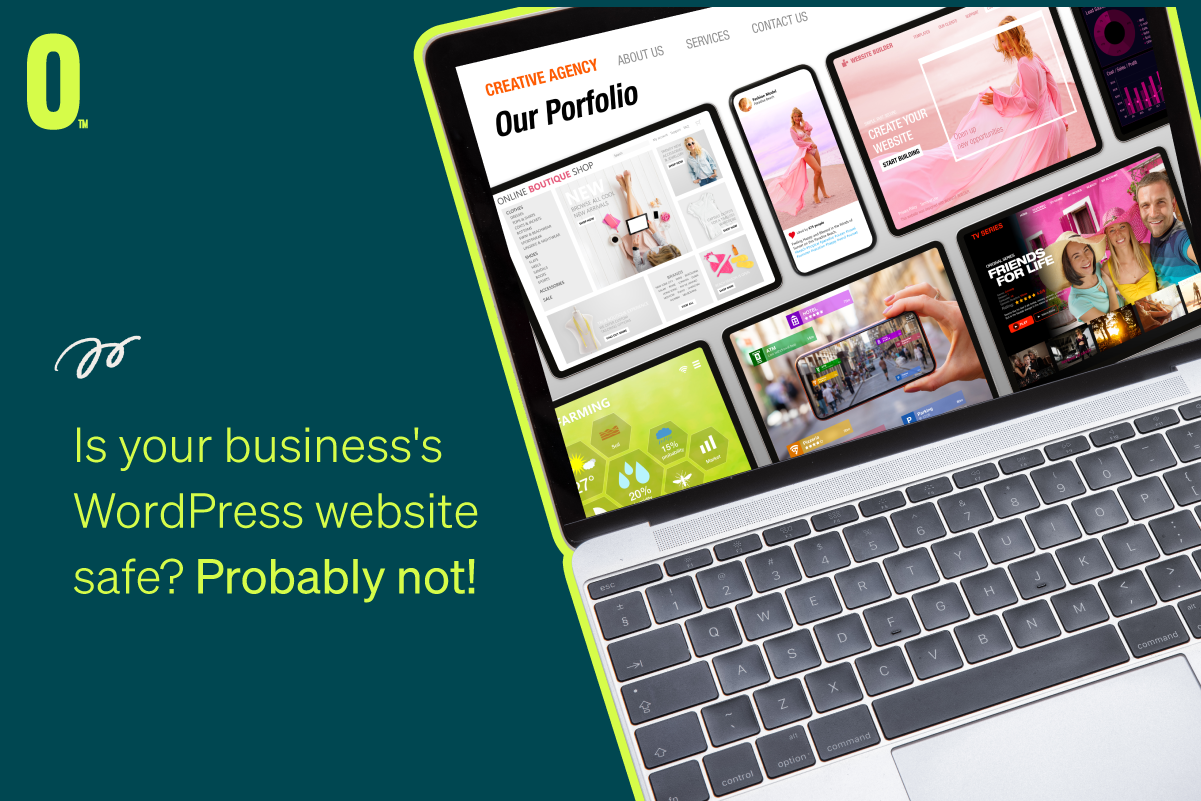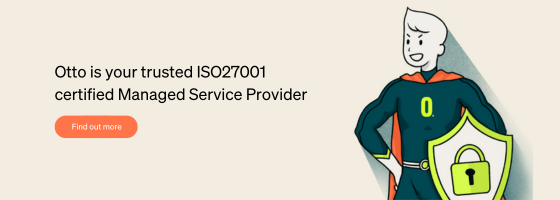You website is the online face of your business. For many organisations, WordPress has become the go-to platform for creating and managing websites due to its user-friendly interface and vast customisation options. However, with the rising number of cyber threats, it is essential to ensure the security of your WordPress website. Here, we’ll explore the importance of securing your business’s WordPress website and provides tips on what to do.
Why website security matters
Website security is crucial for several reasons. Firstly, a compromised website can lead to the loss of customer trust and confidence. In an age where data breaches and cyberattacks dominate headlines, customers are increasingly concerned about the security of their personal information. A hacked website can result in stolen customer data, financial loss, and damage to your business’s reputation.

Secondly, a compromised website can negatively impact your search engine rankings. Search engines prioritise secure websites in their algorithms, and if your site is compromised, it may be flagged as potentially harmful. This can lead to a drop in organic search traffic and ultimately affect your business’s online visibility.
WordPress plugins have limited cybersecurity
WordPress is renowned for the incredible range of plugins offered on the platform, which include cybersecurity plugins. However, while they do offer a level of security, they are much more limited than many businesses realise! In fact, WordPress is the most hacked CMS in the world with 13,000 sites hacked every day. Just recently, a vulnerability in the Elementor Pro plugin – one of the most popular WordPress plugins in the world – left 11 million websites exposed to hackers who could then create and run administrator level accounts.
Now, that is not to say that you shouldn’t have a WordPress website for your business – the advantages of these web designs are very appealing – but you DO need to take active measures to keep it secure.
So, why are cybersecurity plugins not enough?
This is because they rely on known patterns and signatures to detect and block attacks. As new attack methods emerge, traditional security measures tend fail to recognise them, leaving websites exposed and vulnerable.
This means hackers tend to target vulnerabilities in plugins or themes, use social engineering to get into the website, or usezero-day attacks on previously unknown vulnerabilities to get into them.
Finally, security plugins and firewalls are not infallible and can produce false positives or false negatives. This can result in them blocking legitimate traffic or allowing malicious activity.
Unfortunately, even with regular updates, plugins may have unknown vulnerabilities or experience delays in updates, leaving your website open to an attack.
You can’t rely on plugins alone to keep your website secure
While security plugins do play a crucial role in website security, relying on them alone just gives a false sense of security that makes you more vulnerable to attack. It’s a bit like locking your front door but leaving all your windows open!

When you are running a WordPress website, like any other CMS, it is essential to use cybersecurity best practices as well to properly secure it.
Tips for securing your WordPress website
- Updates: One of the simplest yet most effective security measures is to ensure that your WordPress core files and plugins are always up to date. Developers frequently release updates that address security issues, so it is crucial to install these updates as soon as you can.
- Use a strong password: Weak usernames and passwords are easy targets for hackers. Choose a unique username that is not easily guessable and use a strong password containing a combination of upper and lowercase letters, numbers, and special characters. Additionally, consider implementing two-factor authentication (2FA) for an added layer of security.
- Limit login attempts: Brute force attacks occur when hackers attempt to gain unauthorised access by trying multiple username and password combinations. Make sure you limit login attempts to 3 tries to help protect your website.
- Use a Web Application Firewall (WAF): This is essentially a shield between your website and potential threats. It works by filtering out malicious traffic and blocking suspicious requests. It helps prevent common attacks such as SQL injections and cross-site scripting (XSS).
- Backup your website:There’s no such thing as a 100% guarantee that your website won’t be hacked. So, if a security breach or website failure, you’ll need an up-to-date backup so you can restore it as quickly as possible. Make sure the backup is done on a weekly or monthly basis to a secure, off-site location like the cloud.
How an ISO27001 certified MSP can help
Partnering with an ISO27001 certified Managed Service Provider can significantly enhance your website’s security. Here’s how we can help you stay secure:
- Robust security measures: An ISO27001 certified MSP follows international best practices for information security management. We employ stringent security measures, ensuring that your website is protected against evolving threats.
- Proactive monitoring and detection: MSPs employ advanced monitoring tools to detect and respond to security incidents promptly. We can identify potential vulnerabilities and mitigate risks before they impact your website.
- Regular security audits and assessments:We perform regular security audits and assessments to identify weaknesses in your website’s security posture. Our teamwill provide recommendations and implement necessary improvements to keep your website secure.
- Staff training: Many cyberattacks today rely on social engineering – essentially tricking people into giving out the information hackers need to get access to your website. We provide staff cybersecurity training to help your teams actively keep your business secure – and it’s packed full of advice they can use to prevent attacks on their personal online accounts too.
- Incident response and disaster recovery:If a security breach does occur, we can ensure you have an incident response plan in place that minimises damage, ensures fast recovery, and reduces downtime as much as possible.
- Ongoing support and maintenance:We provide continuous support, ensuring that your website remains secure in the face of new threats. We’ll assist with updates, patches, and other security-related tasks to keep your website protected.
Securing your business’s WordPress website is vital to safeguard your data, maintain customer trust, and protect your online reputation. By following best practices such as keeping your WordPress core files and plugins up to date, implementing strong usernames and passwords, and using security measures like web application firewalls, you can enhance your website’s security significantly.
Additionally, partnering with Otto, an ISO27001 certified Managed Service Provider in Melbourne,will ensure that you haveexpert assistance and comprehensive security solutions, including staff training, keeping your website as safe as possible from potential threats!




